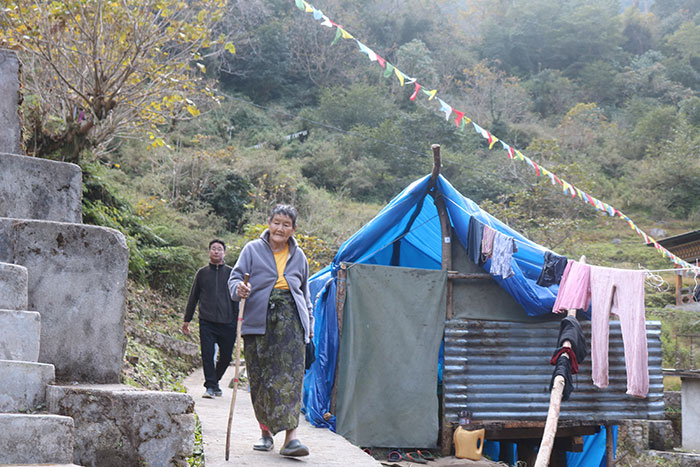Phurpa Lhamo | Punakha
With only 11 guest rooms at Chubbu Tshachu (hotspring) in Toedwang gewog, Punakha, visitors are forced to lodge in tents.
At an elevation of over 1,700 meters above sea level, visitors said that the makeshift tents were poor shelter. Visitors said that the tents were cold at night and hot in the day.
A visitor, Sonam Tshering, 70, said that the tents were inconvenient for those disabled, the elderly and the sick as most tents were located far from the pools.
“There are people who need to be carried to the ponds.”
Without electricity in the tents, residents have to prepare meals before dark. “If it rains, the water leaks in and even if there isn’t rain, the vapour from cooking also rests on the tent. Then as it precipitates, it wets our blankets and mattresses,” he said.
Daily rent for tent ranges between Nu 120 and Nu 180 depending on the size. The guestroom charges range between Nu 100 and Nu 200 also depending on size.
Although similar in size to the tents, the guestrooms (concrete building) have electricity and are warmer.
The gewog representative Tshewang Nidup, who runs the accommodation services at the tshachu, has proposed a project to construct multiple single-storied buildings with 50 rooms.
Tshewang Nidup said that he has today applied for Nu 8 million (M) cottage and small industries (CSI) loan for the construction of the structures. If approved, the work is expected to complete within a year’s time.
“Our aim is to build enough rooms with local materials. I also plan to engage the youth in our village,” Tshewang Nidup said.
While only 17 tents are pitched this season, 43 tents were pitched last season. The tshachu receives guests mostly between November and late February.
“Visitors have decreased due to Covid-19,” Tshewang Nidup said. However, visitors are expected to increase over time.
Today, each family stays in a single room or a tent at the site. Each family has around six individuals including children.
Chubu tshachu is best known to help treat joint pain, skin rashes, wounds and urinary tract infections (UTIs).


